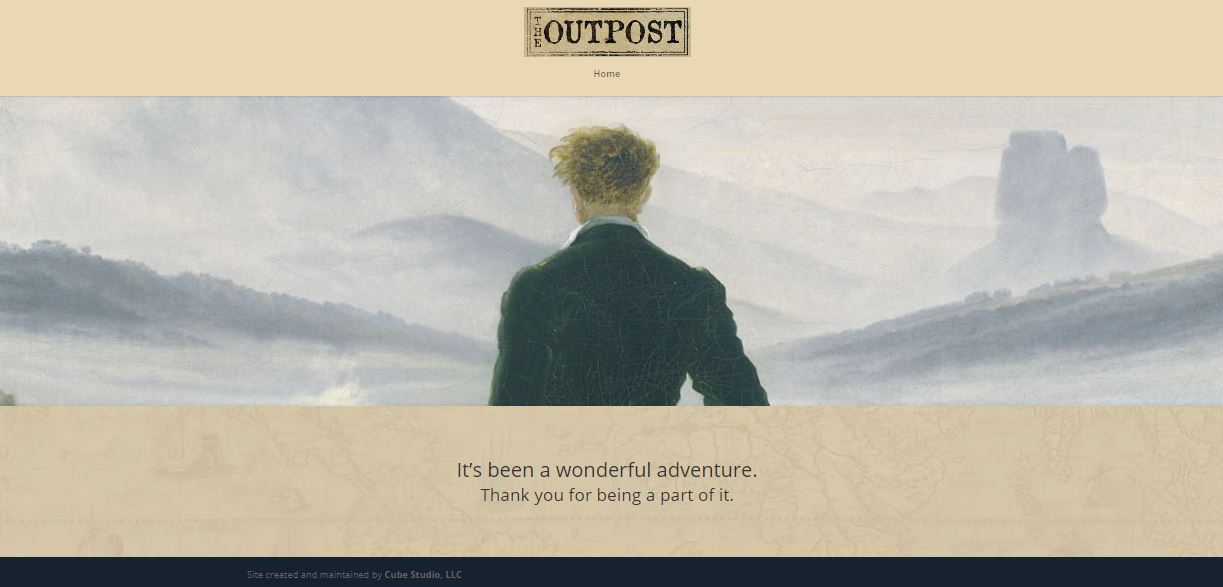Golf architect Keith Foster faces a maximum 5-year prison sentence after he pleaded guilty Dec. 19 in an Alexandria federal courtroom to one count of illegally transporting and selling items made from endangered species, migratory birds and other wildlife protected by federal law.
The 60-year-old Foster was convicted of violating the Lacey Act (16 USC §3372) when he and his wife Pam owned The Outpost antique shop in Middleburg, Va. Based on federal court records, it does not appear Mrs. Foster faces similar prosecution.
The Fauquier Times first reported on the story. GNN contributor Ethan Zimman shared the news on Twitter.
The Outpost, which was opened in 2012, was raided by U.S. Fish and Wildlife Service agents on Nov. 16, 2017, with agents removing a variety of items on a rented truck. The government alleges Foster transported between $250,000 and $500,000 worth of prohibited items through 35 separate shipments which began in 2012 and continued through 2018, after the raid.
The animals from which these products were made are protected under the Endangered Species Act, which implements and administers the international treaty known as the Convention on International Trade in Endangered Species (CITES).
The Outpost website once said it sold "a curated bounty [that] is personally sourced from our favorite places around the globe resulting in an unrivaled selection of exceptional antiques, fantastic home furnishings and unique gifts.” At times, the website also advertised selling the illegally imported goods. On Nov. 21, 2016, The Outpost offered for sale on its website various protected wildlife items, including sawfish clades and numerous mounted birds.
From the outset, Foster had run-ins with the US Fish and Wildlife Service. In 2012, Foster attempted to import an Indian leopard skin rug, which was prohibited under the Endangered Species Act. The rug was seized by the USFWS. Foster petitioned for the release of the rug, but his petition was denied and the USFWS supplied Foster with a detailed outline of the rules applicable to the import of wildlife and wildlife products.
The government alleges Foster made multiple buying trips abroad to source items for sale at The Outpost. Many of these items were made from endangered species, including sawfish, zebra, barn owls and crocodiles.
Prosecutors say Foster asked a shipping company to falsify records for each shipment to cover up his imports and evade inspection by the US Fish and Wildlife Service.
However, in December 2016, Foster described his tactics to an undercover USFWS agent posing as a customer. Foster also mentioned he knew importing sawfish blades was illegal but that he was doing it. In an email exchange with the agent-posing-as-customer, he said he bought the sawfish blades in England and "they are extremely difficult to bring in States by the way." A purchase for two items was completed, and, in January 2017, a courier came to pick up the items. An Outpost employee showed the courier various illegal items for sale, saying the shop "only ever had one thing caught, which I think is pretty good." The employee, a woman not explicitly identified, further explained how Foster used his shipping partners to conceal the nature of the imported items.
In a subsequent January phone conversation with this agent/customer, Foster spoke of importing another sawfish blade. He said, "In truth I shouldn't be bringing those in. Cause, you know, um, they're...I mean. Fish and
Wildlife, if they opened up that, and found it, you know, they would confiscate my whole container...so that's a problem."
He added, “Rest assured, I’m gonna bring more in ‘cause I’m the only fool in the States that probably wants to risk it."
After months of further conversations with who Foster believed to be a potentially loyal customer, the USFWS inspected a 40-foot cargo container in Norfolk, Va. Inside were more than 100 items were brought to his store for sale, including sea turtle shells and mounted birds of prey. Many of these items, imported from England, were protected by the Endangered Species Act. None of the wildlife imported was listed on the invoice from the shipper.
On April 6, 2017, the employee spoke with the agent-customer and then emailed photos of various items The Outpost had for sale. Many of these photographs matched items found in the Norfolk shipping container and another inspected shipping container.
On April 12, 2017, Foster showed an undercover USFWS agent several of these items for sale, again indicating he brought these items to his store illegally in dodging USFWS and US Customs. The agent then purchased several of these items, including a mounted barn owl and a jar made from the shell of a sea turtle for a total of $5,420.
The raid was conducted seven months later, including in Foster's home, The Outpost and The Keep.
Despite the raid, Foster continued importing and selling illegally smuggled goods he had purchased from a trip to England during January and Feburary 2018. On March 11, 2018, The Outpost imported another 40-foot container with 569 items for the store. Declarations were made for various items, but none were made for items made from rosewood, which is protected under federal law. The Outpost website then advertised the sale of a rosewood card table with inlay for $3,600.
Foster will be sentenced March 8, 2019 as part of his plea agreement signed Oct. 24, 2018. The remaining illegal items and $275,000 in cash were forfeited as part of the deal. Foster also agreed to testify against future potential criminal and civil defendants in cases related to his importing and smuggling.
In 2018, the shop was mysteriously closed, without much fanfare. Two other shops the couple owned in the area, The Keep and The Cottage, were also closed, according to the Fauquier Times. Foster told reporter Len Shapiro his architectural work had him too busy to continue running the store.

When the store had closed, The Outpost's website changed to simply inform people of the closure, saying, “It’s been a wonderful adventure. Thanks for being part of it.”
[scribd id=396092948 key=key-Igq9QYZDNBE8Jp5OhabY mode=scroll]

